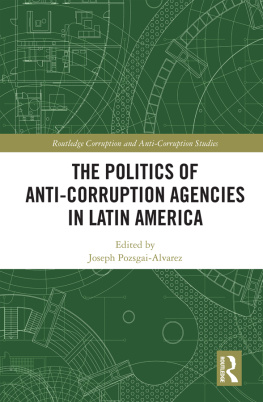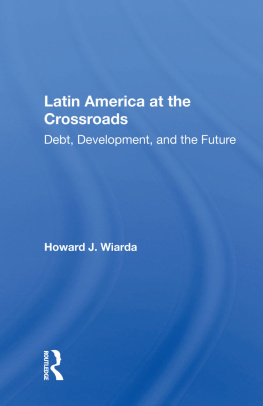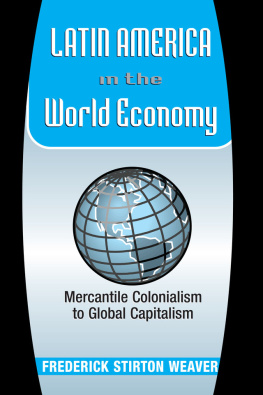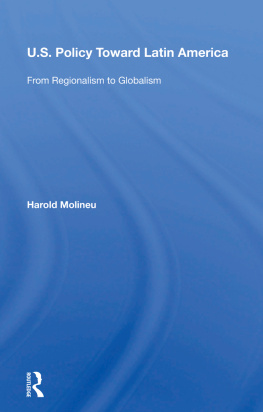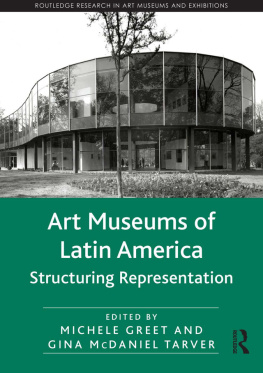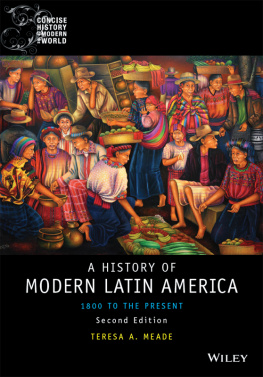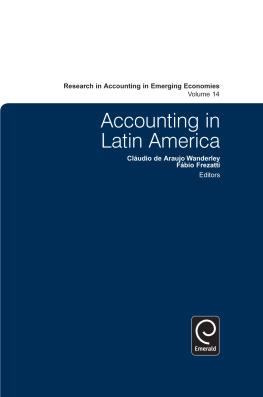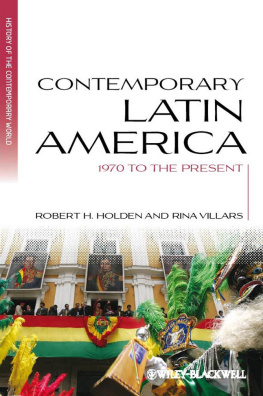Stanford University Press
Stanford, California
2010 by the Board of Trustees of the Leland Stanford Junior University. All rights reserved.
No part of this book may be reproduced or transmitted in any form or by any means, electronic or mechanical, including photocopying and recording, or in any information storage or retrieval system without the prior written permission of Stanford University Press.
Printed in the United States of America on acid-free, archival-quality paper
Library of Congress Cataloging-in-Publication Data
DeHart, Monica C. (Monica Christine)
Ethnic entrepreneurs : identity and development politics in Latin America / Monica C. DeHart.
p. cm.
Includes bibliographical references and index.
9780804773782
1. EthnicityLatin America. 2. Economic developmentSocial aspectsLatin America. 3. EntrepreneurshipSocial aspectsLatin America. I. Title.
F1419.A1D43 2010
305.80098dc22
2009021944
Typeset by Bruce Lundquist in 10/14 Minion
Acknowledgments
Because research for this book unfolded over a decade-long period, it owes material and moral support to countless sources. Writing these acknowledgments thus represents an ambivalent task. On the one hand, it allows me to recognize and thank the many people who contributed to and supported this project in some way. On the other hand, this process forces me to reconcile myself to the imperfections and necessary partiality of this project, for which I alone am responsible.
Institutional support for the various phases of field research included herein was generously provided by the National Science Foundation, the U.S. Department of Educations Fulbright-Hayes fellowship, and the Inter-American Foundation, as well as Stanford University, Lewis & Clark College, and the University of Puget Sound. Language training in Kiche was supported by a Foreign Language and Areas Studies Grant.
In terms of the work on the ground, none of it would have been possible without the long-term support, hospitality, and generosity of my many interlocutors in the various field sites where this research unfolded. In Totonicapn, the employees and community participants of CDRO were unfailing sources of orientation, information, intellectual insight, and friendship. As will be obvious in the following pages, Benjamn Son Turnil played a crucial role as both esteemed colleague and astute commentator on CDRO and the broader politics in which it was engaged. Through ongoing dialogue on the development process, Gregorio Tzoc Norato, Hilario Garca Toc, Arnulfo Vsquez Cu, Jaime Gonzlez, Lesbia Tal Batz, Ana Victoria Garca, Agustina Garca, and Mara Ramirez Tzoc were indispensable resources, fast friends, and savvy analysts of the development landscape. I owe much to their expertise, and I hope that this final product approximates their expectations and accomplishes the work that they hoped it would.
I must also thank the community members of the various Totonicapn communities in which I worked from 1995 to 2001. Although many of these collaborators must remain unnamed on these pages, they represent the reason why this work matters. The Alvarado family, especially Virgilio and Juana, were much-appreciated guides and strategic collaborators in this part of the research process. In Quetzaltenango, I owe institutional support and camaraderie to the devoted members of the Proyecto Lingistico Quetzalteco. They accompanied me throughout many years of research, providing an important social and intellectual base. My Kiche instructor Eduardo Elas also deserves special mention for his long years of friendship and support. Finally, members of the Galicia Meneses family continually provided a welcome, nurturing environment to which I could recede in those moments when I thought I wasnt doing research.
In the United States, I owe much gratitude to the organizers of the Digital Diaspora project, including Akhtar Badshah, who allowed me such open access to the project and welcomed my critical interpretations of it. My anthropology colleagues at Intel Corp., including Genevieve Bell and Tony Salvador in particular, were crucial to linking me to the technology side of development politics and for pushing me to articulate how it connected with the social world.
The conceptual and theoretical underpinnings of this project were also cultivated in the United States, where my ideas and methods were strengthened and honed by my amazing mentors and peers. My initial foray into anthropology was supported by Carol Smith and Charles Hale, who incited my interest in ethnography and in Guatemala and who oriented my original and subsequent travails in the field. Their initial mentorship and faith in me made all the difference in forging my intellectual commitment to anthropology. Carol Smiths continued presence in my research and thinking should be obvious in the pages that follow.
At Stanford University I benefited from an incredible set of colleagues in the Cultural and Social Anthropology Program. Kathleen Coll, Arzoo Osanloo, Anu Sharma, Bobby Vaughn, Scott Wilson, and Mei Zhan were early comrades in arms who have followed this research every step of the way and have remained essential critical commentators on my work. Consequently, their importance to my scholarly production and sanity cannot be overemphasized. At Stanford, I also benefited from supportive intellectual godparents in the form of Ramon Gonzlez-Ponciano, Bill Maurer, and Diane Nelson; they modeled how to navigate the world of academia without losing ones political compass or sense of humor. George Collier, Paulla Ebron, Akhil Gupta, and Carol Smith not only saw me through the initial stage of this research, but also taught me what counts as good scholarship, and why. Sylvia Yanagisako and Purnima Mankekar provided astute professional and scholarly insights that have been invaluable to this day; Renato Rosaldo and Mary Louise Pratt served as essential foundations for my work on Latin American and Latino crossings. Above all else, George and Jane Collier showed me what anthropology and academia could be at their best by inviting me into a world of collegiality, solidarity, and culinary delights. I am much indebted to them and hope that this research does justice to the Latin American tradition that they worked so hard to establish and nurture during their time at Stanford.
Over time, many other colleagues and friends have done me the service of engaging these ideas and/or providing constructive feedback on the actual text. My sincere thanks go to Abigail Adams, Stefan Ayora-Daz, Stephen Collier, Jean Comaroff, Janet Finn, Edward Fischer, Melissa Fisher, Robert Goldman, Greg Grandin, Brian Hoey, Sangeeta Kamat, Denise Lawrence-Zuniga, Walter Little, Celia Lowe, Brandt Peterson, Nancy Postero, Jason Pribilsky, Suzana Sawyer, K. Sivaramakrishnan, Timothy Smith, Lynn Stephen, and Christine Walley. Central to the tasks of intellectual production, narrative construction, and also daily survival have been my stable writing group members and bosom buddies, Jennifer Hubbert and Lisa Hoffman. They have read innumerable versions of this text and imprinted themselves indelibly on the analysis in the following pages.
The arguments elaborated in this book have benefited from interlocutors in multiple conference and presentation venues. Segments of this research were presented at several American Anthropological Association panels between 2001 and 2007, as well as at the Society for North American Anthropology in Merida, Mexico, and the Guatemalan Scholars Network Conference in Nashville, Tennessee. Papers on the topics contained herein were also presented at the University of Washington, Tacoma, and the University of Puget Sound. I extend my sincere thanks to my colleagues in the Comparative Sociology, Latin American Studies, and International Political Economy programs at UPS for their helpful insights. I also thank my students who have generously read and earnestly engaged these ideas in ways that have helped me to deepen and clarify my arguments.


